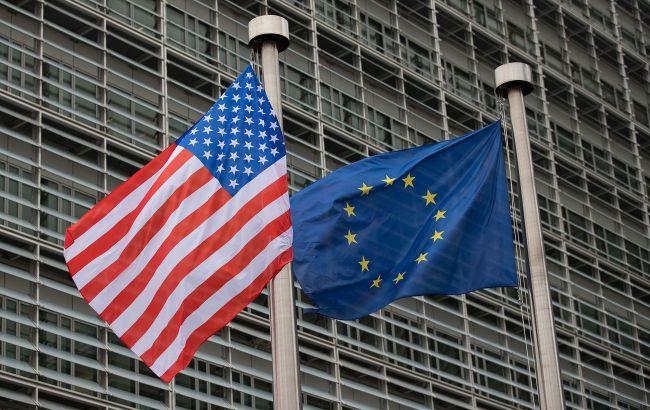US and EU fail to agree on tariff removal: Tensions escalate
 US-EU talks on tariff removal end in failure (Photo:Getty Images)
US-EU talks on tariff removal end in failure (Photo:Getty Images)
The trade dispute between the US and the EU is escalating, as high-level talks aimed at dismantling tariffs have failed to yield significant progress, according to Bloomberg.
Efforts by both sides to ease mounting transatlantic trade tensions delivered minimal results, with officials from President Donald Trump's administration signaling that Washington has no intention of lifting the bulk of tariffs imposed on EU goods.
EU Trade Commissioner Maroš Šefčovič traveled to Washington for discussions with US Commerce Secretary Howard Lutnick and Trade Representative Jamison Greer. However, people familiar with the matter say the meetings concluded without providing Šefčovič with a clear sense of the White House's position or next steps.
According to people familiar with the talks, US officials emphasized that 20% of the so-called reciprocal tariffs - temporarily reduced to 10% for a 90-day window - along with other trade restrictions, including those targeting car and metal imports, will remain in place.
The tariffs imposed under the Trump administration cover European goods worth approximately €380 billion - roughly $431 billion - marking one of the largest transatlantic trade barriers in recent memory.
Last week, President Trump agreed to delay the implementation of additional tariffs for 90 days, prompting a reciprocal gesture from Brussels. The European Union clarified that its own set of tariffs targets US imports valued at around €21 billion. If no compromise is reached by the end of the 90 days, these duties will automatically come into effect.
As negotiations continue, the EU is simultaneously preparing countermeasures, forging new trade agreements with global partners, and working to bolster the efficiency of its internal market.
US trade war
US President Donald Trump on April 2 signed off on sweeping tariffs affecting imports from more than 180 countries, with duties ranging from 10% to 49% depending on the country and product category.
Among the measures, the administration imposed a 25% tariff on steel and aluminum imports from the European Union. Brussels swiftly responded with its own set of duties on US imports worth €21 billion.
On April 9, Trump temporarily reduced the tariffs to 10% for a 90-day period, prompting the EU to delay its retaliatory 25% tariffs for the same duration and signal openness to further talks with Washington.
For a detailed analysis of the broader economic impact of Trump’s tariff war, read the article by RBC-Ukraine.


